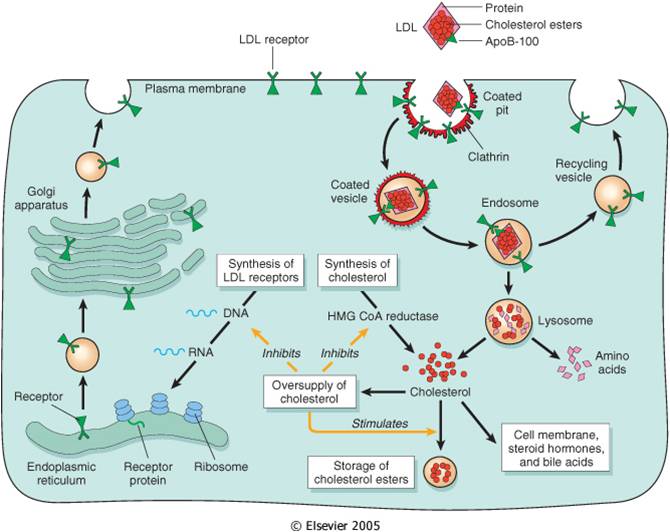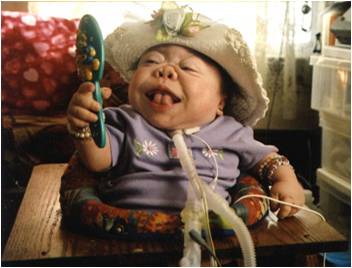Cards In This Set
| Front | Back |
|
Cystic Fibrosis-mode of inheritance?-What is mutated?-How would it have functioned normally?-Overall how is this disease caused
|
 - AR - cystic fibrosis transmembrane conductance regulator (CFTR) mutation (Cl ion channel in PM) - Predominant Class II mutations (incorrect protein folding) (remember, class 1 means nothing is produced from mRNA) - Would fxn normally if prot was transported to PM Protein is ejected from ER back to cytosol and degraded This disease is caused not because the mutation inactivates the protein, but b/c the active protein is discarded b4 it reaches the plasma membrane |
 CF: Bronchiectasis-what leads to this disorder? -symptoms? |
 After many infections of chronic respiratory infections - Chronic cough - Dyspnea-shortness of breath - Irreversible bronchial dilation and thickened bronchial walls - Dilated central bronchi - Hyperexpansion - Mucoid impaction à obstruction and 2y infection à fibrosis à bronchiectasisRespiratory failure: most common cause of death |
|
Defective Protein
Folding/Processing in ER-Name two disorders involved with defective routing-What are 4 disorders involved with defective protein folding?
|
-
Defective
routing
1-
CF:
CFTR
2-
Hypercholiesterolemia:
LDL receptor
--cont’d--
-
Defective
protein folding/conformational errors
1-
Alzheimer’s-extracell. aggregation of Beta amyloid & intraneuronal aggregation of tau
2- Parkinson’s
3-
Huntington’s- expansion of CAG repeat in huntington sequence: aggregation of abnormal protein in nucleus
4-
Creuzfeld
Jacob disease
Cataracts
|
 Creutzfeld Jacob disease (1 of 4 related diseases) |
 §Abnormal protein folding → aggregation •Prion protein (PrP): GPI-linked α-helix protein on outer membrane surface of neuron membrane §Abnormal folding: β-sheet filaments (protease resistant) §“infectious”: converts normal PrP to abnormal aggregating form §Scrapie (sheep) / BSE (cattle) / vCJD (human)The other 3 are: Alzheimers, Parkinsons, Huntington's |
 Familial hypercholesterolemia-What is mutated? What is the effect?-Because this is involved with rER, what class of mutation is this?-What is the major risk factor? |
 - Mutations in LDL receptor à inc plasma cholesterol, incr synthesis of LDL - 1/500 hets, 2-3x plasma cholesterol (homozygotes 6x) - Class II: defective transport from rER to Golgi (don’t reach PM) Major risk factor for Coronary heart disease (CHD), premature atherosclerosis |
 I-cell disease (Mucolipidosis II)-What is the cause of mucolipidosis? -What is the deficiency? What results from this?-phenotypic effect?-Life expectency? |
 Mucolipidosis is the accumulation of glycoproteins and glycolipids - Deficiency of N-acetylglucosamine phosphotransferase à absence of M6P tag in the cis golgi - Acid hydrolases lacking M6P are secreted extracellularly à undigested material accumulates as inclusion bodies and progressively damage cells. - Skeletal abnormalities, coarse features, restricted joint movement, psychomotor retardation - Enlarged liver, spleen, heart valves; death: CHF/RTI Life expectancy < 10 yrs |



